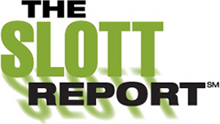Retirement planning has many nuances, far more than the average investor can adequately negotiate. That is why an educated financial advisor is so important. He or she can help said investor navigate all pitfalls and answer all questions. This week's Slott Report Mailbag looks at some tricky subjects - disclaimers, step transactions, investing options within a Roth. These people didn't have the right answers - but a knowledgeable financial advisor should. As always, we stress the importance of working with a competent, educated financial advisor to keep your retirement nest egg safe and secure. Find one in your area at this link.
1.
Greetings,
I have a question:
| Send questions to [email protected] |
Thank You,
Jenni
Answer:
A qualified disclaimer of an IRA is not reported to the IRS. The disclaimer is filed with the financial institution that has the IRA. If you as beneficiary do not take a required minimum distribution from the IRA and you disclaim your entire portion, you will not receive IRS Form 1099-R.
2.
Dear Mr. Slott,
I have purchased most of your courses over the years and have been a follower for many years; however, I have never seen anyone address one question I have. I realize that MLPs (master limited partnerships) are NOT a good investment for IRAs, due to tax consequences. However, since my Roth IRAs are supposed to be tax FREE, can I invest in publicly listed and traded MLPs and REITs (real estate investment trusts) or oil trusts, etc, in my Roth IRA, due to the fact that there are supposed to be no further taxes on my Roth IRA or any legitimate withdrawals? After all, I have already paid all the taxes due on the Roth, so wouldn’t the MLP tax problem NOT exist for the Roth?
Answer:
While some investments such as limited partnerships, REITs, and tax-free municipal bonds have certain tax characteristics and benefits when the investments are owned outside of an IRA, those characteristics generally do not apply when the investment is purchased inside any IRA. The taxation of a Roth IRA generally is based on the aggregation and ordering rules, regardless of the investments inside the Roth IRA. However, certain unrelated business and debt financed investments will create unrelated business income tax which must be paid by the IRA or Roth IRA. The IRA must file Form 990-T to report and pay this tax. The issue of taxation of an investment is something you should explore with the promoter or advisor recommending the investment to you.
3.
Dear Mr. Slott:
I attended one of your Chicago seminars a few years back, and greatly enjoyed it. You are THE Expert!
I have an unusual (perhaps unique?) question for you/your staff. I converted a small IRA in 2011, and inadvertently included a very small $2,000 variable annuity contract in the conversion. This particular annuity contract has very desirable guaranteed growth, income and death benefit features, at a very low internal cost. I now would like to make a large addition of rolled-over 401(k) funds to that same contract, but unfortunately, my retirement funds will roll in a traditional rollover IRA. The desired end investment vehicle (my small annuity contract) is now over in my Roth IRA.
It is too late to re-characterize the 2011 conversion, without a PLR (private letter ruling). But could the following strategy possibly achieve my goal of getting my now Roth account annuity back into a traditional IRA?
- Make a new traditional IRA contribution for 2012 or 2013. (This would be my only traditional IRA account, which solves the 'aggregation' issue.)
- Convert that IRA to a Roth IRA, combining those converted funds with my small existing Roth IRA account (where the annuity is held).
- Then, do a partial Re-characterization a portion of my Roth Conversion amount, and include the annuity contract as part of the value of the recharacterization?
Your thoughts would be appreciated.
Best regards,
R. Shawn Jones
Answer:
Your series of step transactions only make sense if you do not want to convert the 401(k) balance to a Roth IRA. You do have the ability to convert the 401(k) funds directly to the Roth IRA holding the annuity. If you do not want to pay the income tax on a conversion of the 401(k) funds to your Roth IRA then your IRA contribution that is converted to a Roth IRA will be taxable unless it was a nondeductible IRA contribution. However, you can recharacterize (reverse) that conversion amount or a portion of it (plus its pro-rata gain or loss) back to an IRA using a formula that uses the entire fair market value (FMV) of the Roth IRA. The FMV of the annuity contract in the Roth IRA may be much greater than its cost because of the guaranteed income and death benefits, which must be included in the FMV calculation.
After the recharacterization amount (including the gain or loss) is calculated, that amount must be transferred back to the IRA. The recharacterization amount can be satisfied by transferring back any asset in-kind from your Roth IRA as long as the FMV of the asset transferred back to the IRA is equal to the recharacterization amount. Also, whether the terms of the annuity contract would allow an in-kind transfer back to your IRA should be addressed with the insurance company before you proceed.
- By Joe Cicchinelli and Jared Trexler









0 comments:
Post a Comment